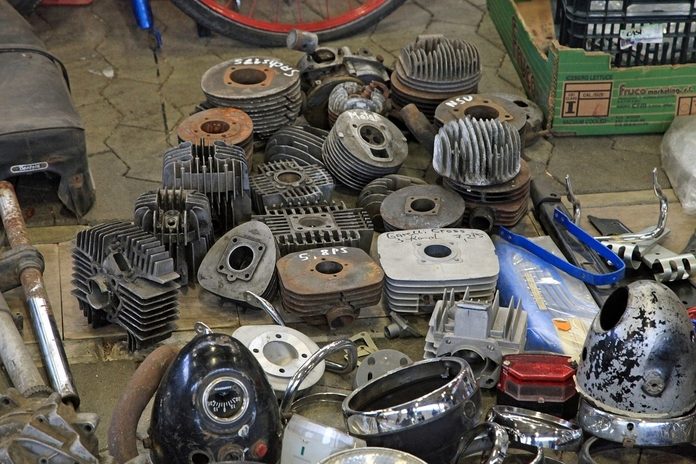
Bad alternator vs bad battery, which do you think is a more serious problem? Did it ever occur to you to ask this question? To me, both are issues I’d rather not be confronted with. But, as a car owner, I know I need to face the fact that awareness is the key to a better driving experience. So, let’s find out which is which.
Is a bad alternator a worse problem than a bad battery? Yes, a bad alternator is definitely a more pressing problem than a bad battery. For one, a bad alternator can kill a battery, even if it was not the battery that was the issue to start with.
When the alternator is going bad, the battery picks up the slack of providing electricity to the car’s electrical system. At the same time, the alternator does not perform its function of recharging the battery, As such, the battery will eventually get drained fast.
Keep in mind that your car battery’s main purpose is to provide a strong surge of power to start the engine. Supplying power to some of the car’s electrical devices is a secondary function that is not meant to be for a long haul. This is the main role of the alternator, plus providing power to recharge the battery.
When the alternator fails, the battery does not receive a charge that should replace the huge spurt of power spent starting the car. At the same time, it is continually drained by the car’s electrical system which is no longer getting electricity from the alternator.
Ultimately, your battery will die. Many batteries these days have huge capacities, but they eventually get drained if the headlights, navigation system, stereo and more all draw power only from them.
How To Tell Whether It’s The Alternator And Not The Battery
When your car refuses to start, the first thing that comes to mind as a cause would be a dead battery. But, there are other reasons why your car won’t start. It could also be because of corroded or loose connection cables, a failed starter, or an ailing alternator.
Fortunately, it is not difficult to determine if the culprit is your battery or alternator. The signs and symptoms are almost identical, but jump-starting your car can do the trick.
Distinguishing a bad battery from a bad alternator is not difficult. All you need to do is jump-start the car and then detach the jumper cables quickly. Wait for some time. If the engine starts and dies again immediately, that means that the alternator is not charging the battery. But, if the engine starts and continues running, most likely, the problem is the battery.
Take note though, that a bad alternator can cause your battery to die fast.
What Is An Alternator And What Does It Do?
An alternator is a car component that has a critical function in operating a gas-fueled car engine. Basically, the alternator converts the mechanical energy produced by the rotation of the engine’s crankshaft into electricity in a process called induction. The wires inside the alternator penetrate a magnetic field and by so doing, generates an electrical current which powers the electrical system of the car.
The alternator also charges the car’s battery as the car runs by converting mechanical energy generated by the spinning pulley into electrical current. It is essentially the reason why a car seems to have a continual supply of power. Starting an engine and meeting the electricity needs of the various electrical devices and accessories of a car require a lot of juices. If the alternator is unable to charge the battery and all the car accessories draw power only on the batteries, the batteries will surely fail.
Signs And Symptoms Of A Bad Alternator
A failing alternator gives out some signs and symptoms. Here they are:
1.Warning light
In many modern cars, there is a warning light that lights up when there are issues on the alternator. This could be an icon with “GEN” (generator) or “ALT” (alternator) written on it or one shaped like a battery on the dashboard.
The warning light is connected to the car’s computer system which monitors the alternator’s voltage output. When the output is within the range of a predetermined value, the warning light is unlit. But, when the voltage output rises above or drops below the limit, the warning light lits up. When the alternator problem is at an early stage, the light flickers – lighting up for a few seconds and turning off again.
Normally, the voltage output of an alternator is set to a constant 13 volts to 14.5 volts. When all the electrical accessories of your car are working such as the headlights, radio, heated seats, windshield wipers and more, the alternator has to work extra hard to maintain the output voltage at the preset level.
If you have a failing alternator and it’s not operating at its maximum potential while a heavy demand for power is placed on it, the output could go below or above the limit. This scenario activates the warning signal.
It also lights up sometimes when an electrical accessory is activated. Such as when you turn on the windshield wiper while driving at night and the headlights are on. When you switch off the wiper, the warning sign also turns off.
2. Headlights that flicker, and other car lights dim
Flickering or dimming headlights is an early sign of an alternator that is malfunctioning. Consider it as a red flag when your headlights flicker when you accelerate or decelerate. When an alternator is in good condition the headlights will maintain a bright light under any speed. The headlights, and even the dome light and dash lights may also dim as signs of a failing alternator.
Flickering and dim lights are the results of an alternator that is not generating enough power to maintain the lights at full strength. It is attempting to maintain the needed power output but is failing in its attempt.
3. Dead or weak battery
If the alternator is not functioning properly, the car quickly drains all of the capacity of the battery, As mentioned earlier, when the alternator is bad, all the electrical accessories draw power from the battery. At the same time, the battery fails to be charged by the alternator, thus causing the battery to drain quickly.
4. Strange noises under the hood
There are various moving parts of an alternator that spin and turn smoothly when it’s working properly. When one or more of said parts break or come loose, you will definitely hear some unusual sounds. A grinding sound may be caused by internal bearings that are run-down.
A whining or growling noise could mean the serpentine belt or accessory belt of the alternator pulley is loose, stretched out from use, not in proper alignment, or worn-out.
The alternator is operated by a serpentine belt or accessory belt wound around the alternator pulley which is working jointly with the crankshaft pulley. If the serpentine belt is defective and is not rotating the alternator pulley adequately to produce a charge, then you will hear this whining or squealing noise.
5. A car that won’t start, is difficult to start or is stalling
Other than a dead battery, a defective alternator could also be a reason why your car won’t start. Your battery may not be dead yet, but if the alternator is bad, it is not charging your battery properly so that the battery does not have the needed huge surge of power to start the car.
If your engine is stalling or cuts off suddenly when you’re driving, it could be that the alternator is not supplying enough power to the spark plugs to keep it running.
6. Electrical accessory failures
Since the alternator is the main supplier of electricity of the various electrical gadgetry and accessories in your car, a bad alternator will surely affect the operation of said devices. Power windows and windshield wipers could operate more slowly. A power sunroof can get stuck. A CD could be swallowed by the stereo. When most of these accessories are acting up, most probably, it’s the alternator that is in trouble.
All these are symptoms of an alternator gone bad. However, to really be sure that it is really your alternator that is the culprit, you should have it tested as soon as possible.
Conclusion
Bad alternator vs bad battery, which one is worse should not be the question. Both are problematic and should be determined immediately. However, a bad alternator could be a more serious issue since it could affect other components of the car. In fact, it could be the cause of death of your battery. Having both the alternator and the battery tested by an experienced mechanic is the most responsible thing to do.





